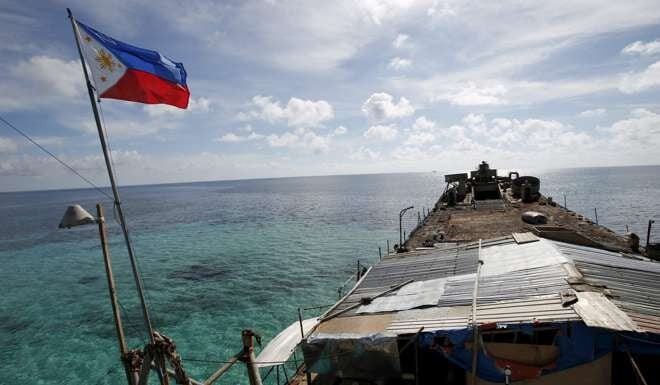
The Chinese government has strongly urged the Philippines to immediately cease its territorial infringements and provocative actions, and to refrain from challenging China's firm resolve to safeguard its territorial sovereignty and maritime rights. The Chinese Foreign Ministry stated this in a statement last Thursday, raising expectations of further escalating tensions in the South China Sea.
At a regular press briefing, Chinese Foreign Ministry Spokesperson Lin Jian vehemently criticized the Philippines' accusations regarding the "high-risk" maneuvers of Chinese vessels near Huangyan Dao (Scarborough Shoal), which recently brought naval vessels from both countries to the brink of collision. He dismissed the accusations, stating that "the relevant remarks disregard the facts and distort the truth."
Spokesperson Lin emphasized that Chinese naval vessels took necessary measures to respond to Philippine warships attempting to intrude into the waters near Huangyan Dao, which China claims as its inherent territory. He asserted that these measures were "justified, lawful, professional, and restrained," and shifted blame by stating that "the Philippines' frequent infringements of rights and maritime provocations are the root cause of the tension."
The current conflict stems from a series of incidents that occurred in the waters near Huangyan Dao over the past few days. The Philippines claimed that Chinese Coast Guard vessels engaged in "high-risk" maneuvers against Philippine Navy ships, posing a threat of imminent collision. In response, China maintained that its actions were unavoidable because Philippine warships were illegally attempting to enter Chinese territorial waters.
Huangyan Dao is a major fishing ground and strategic chokepoint in the South China Sea, with China claiming indisputable sovereignty over it. However, the Philippines also asserts its claim, arguing that it lies within its Exclusive Economic Zone (EEZ), leading to a long-standing territorial dispute. Since China effectively occupied Huangyan Dao in 2012, Filipino fishermen have faced restrictions on their traditional fishing activities, which has exacerbated tensions between the two countries.
In recent years, with the support of the United States, the Philippines has been taking a tougher stance against China's expanding influence in the South China Sea. The Philippines argues that China's claims to the South China Sea have no legal basis, citing the ruling of the Permanent Court of Arbitration (PCA), and is actively conducting maritime activities to protect the fishing rights of its fishermen and its territory.
In response, China has strongly opposed the US intervention, characterizing it as an external force that escalates regional tensions. China adheres to the position that external interference in the South China Sea issue should be excluded, and that the issue should be resolved peacefully through direct dialogue between the parties concerned.
This incident raises the risk of renewed military tensions in the South China Sea. Concerns are growing that misunderstandings or accidental clashes between the two countries could seriously undermine regional stability. The international community is urging both countries to strengthen dialogue and diplomatic efforts to ease tensions and peacefully resolve disputes in the South China Sea.
Experts analyze that the South China Sea issue is not merely a territorial dispute between the two countries but is also closely related to the strategic competition between the United States and China. As military cooperation between the Philippines and the United States strengthens under the US Indo-Pacific strategy, China's vigilance towards this increases, which could further amplify military tensions in the South China Sea.
The future of the South China Sea situation is likely to face significant changes depending on the Philippines' strong response, China's firm stance, the role of the United States, and the mediation efforts of the international community. At this critical juncture, restraint and constructive dialogue efforts by the relevant parties are urgently needed for regional peace and stability.
[Copyright (c) Global Economic Times. All Rights Reserved.]






























